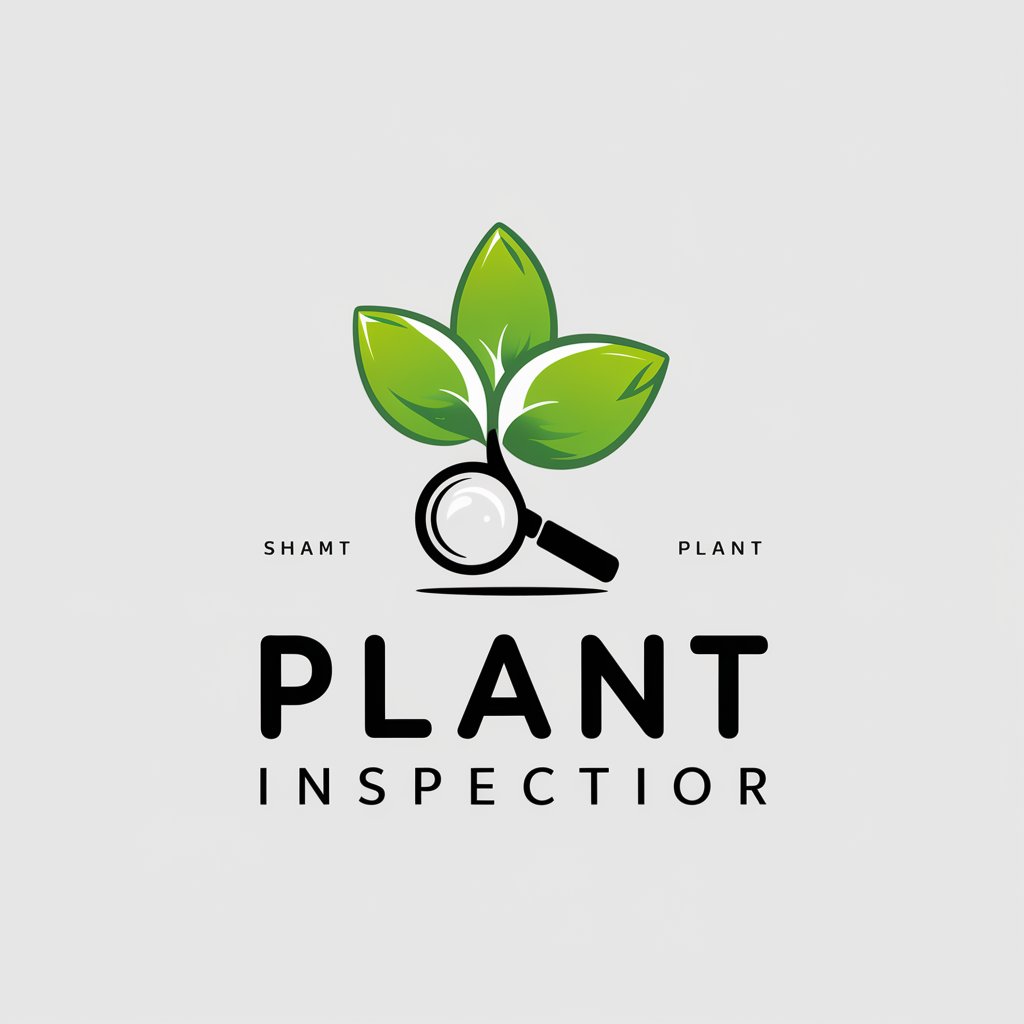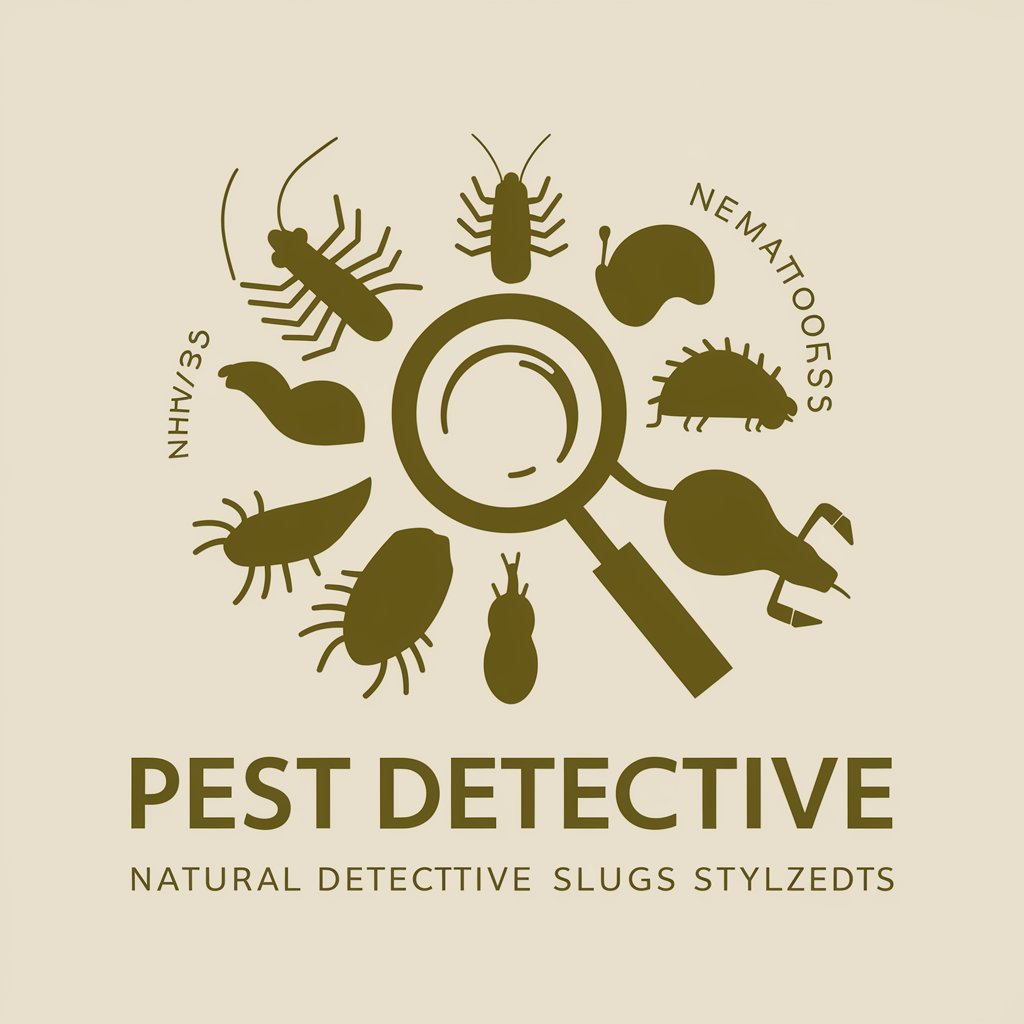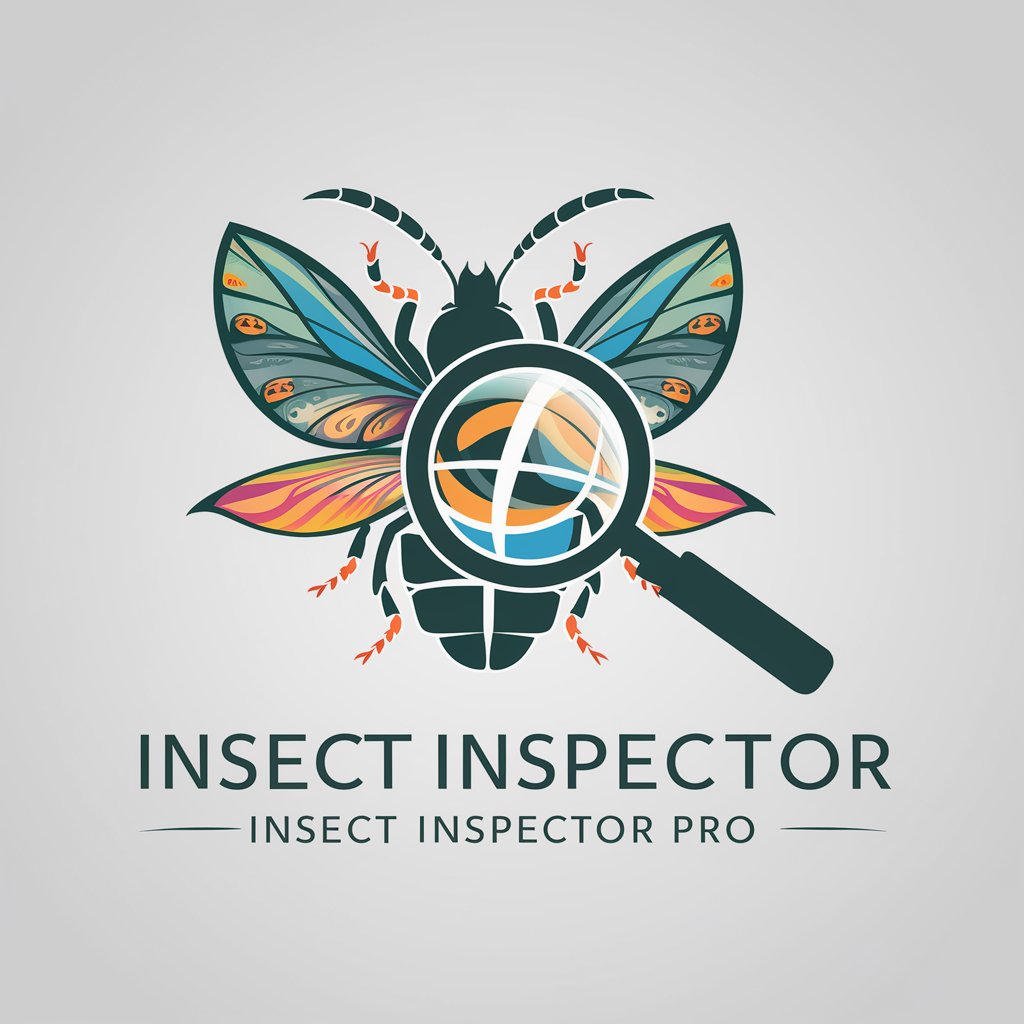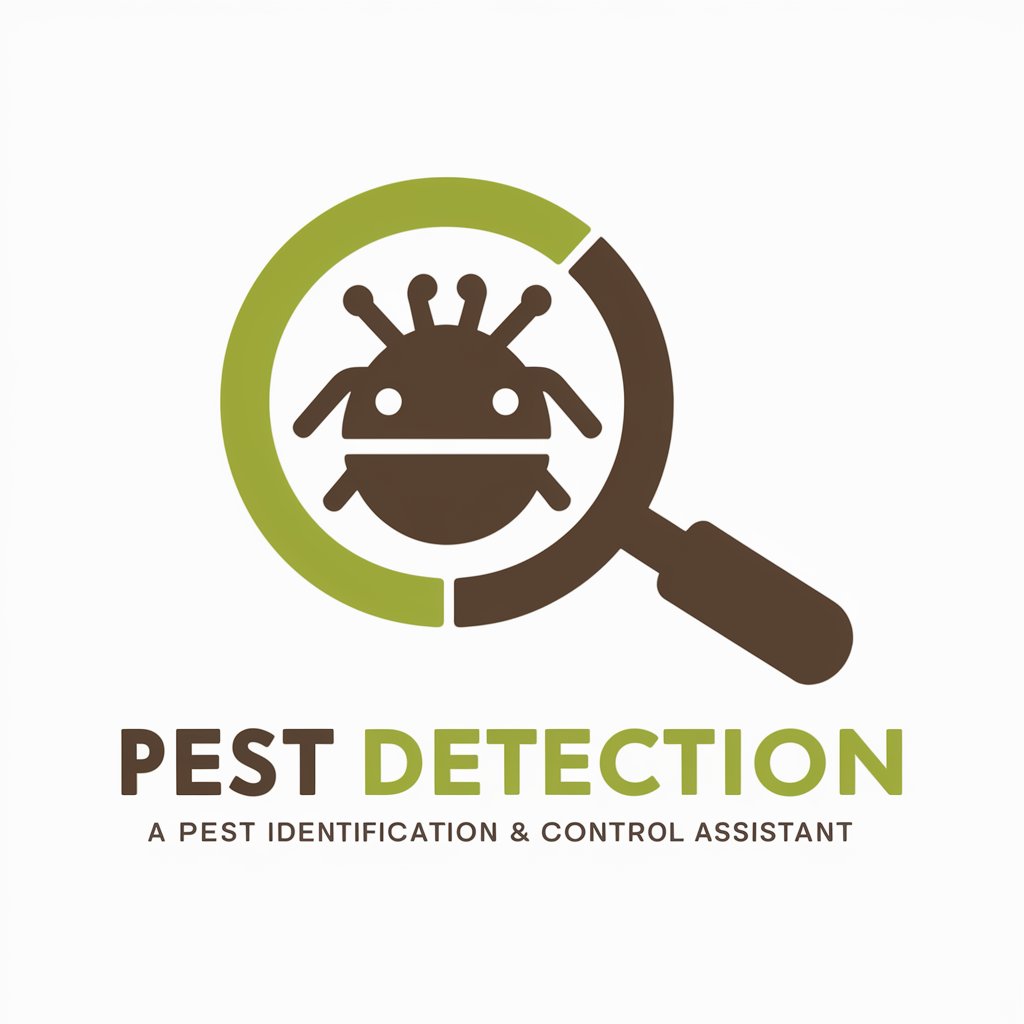
Plant Inspector - Plant Health Diagnostics

Hi there! Need help with your plants?
Cultivate Healthier Plants with AI
What can I do to revive my dying plant?
How often should I water my indoor succulents?
What are the best practices for repotting a plant?
How can I identify and treat common plant diseases?
Get Embed Code
Overview of Plant Inspector
Plant Inspector is a specialized assistant designed to help users with various aspects of plant care and maintenance. It offers expert advice on identifying plant diseases, recommending treatments, and providing guidance on optimal growing conditions. An example scenario illustrating its utility is when a user is unsure about the symptoms of nutrient deficiency in their tomato plants. Plant Inspector can diagnose the issue based on the symptoms described, such as yellowing leaves or stunted growth, and suggest appropriate nutrient supplements or soil adjustments. Powered by ChatGPT-4o。

Core Functions of Plant Inspector
Disease Identification
Example
A user notices rust-like spots on the leaves of their rose bushes. Plant Inspector can identify this as a sign of fungal infection—specifically, black spot disease—and recommend fungicidal treatments and cultural practices to manage the infection.
Scenario
This function is crucial when gardeners encounter unfamiliar symptoms on their plants and need quick, accurate diagnostics to prevent further spread of disease.
Care Guidelines
Example
If a user is growing orchids for the first time and is uncertain about the care requirements, Plant Inspector provides detailed care instructions such as light levels, watering frequency, and humidity needs.
Scenario
This function supports new plant owners and helps them establish routines that foster healthy plant growth, avoiding common mistakes such as overwatering or insufficient light.
Treatment Recommendations
Example
For a user dealing with an aphid infestation on their indoor herbs, Plant Inspector suggests natural remedies like neem oil applications or introducing beneficial insects like ladybugs as an environmentally friendly solution.
Scenario
This is especially useful for users looking for organic gardening solutions that align with sustainable practices and safe household environments.
Target User Groups for Plant Inspector
Home Gardeners
Individuals who manage personal or family gardens and need assistance in maintaining plant health, diagnosing plant issues, and implementing effective treatments. These users benefit from personalized advice that helps them enhance their gardening skills and achieve more successful plant cultivation.
Plant Hobbyists
Enthusiasts who collect rare or exotic plants and require specialized care information. Plant Inspector provides expert tips and nuanced care strategies that are often not widely known, helping these users nurture their unique plant collections.
Urban Gardeners
People living in urban environments who engage in balcony or rooftop gardening. They often face unique challenges such as limited space and pollution. Plant Inspector helps them optimize their limited area and suggests plants that are more resilient to urban conditions.

How to Use Plant Inspector
1
Visit yeschat.ai for a free trial without login; no ChatGPT Plus required.
2
Select the Plant Inspector tool from the available options to start diagnosing your plant's health.
3
Upload clear images of your plant, particularly of areas showing any signs of distress or disease.
4
Provide details about the plant's current conditions, including environment, recent changes, and care routine.
5
Submit your inquiry and receive specific advice on plant health, disease diagnosis, and care instructions.
Try other advanced and practical GPTs
Wastewater Pretreatment Expert
AI-powered insights for wastewater pretreatment

Zero
Empowering research with AI innovation.

Santi Hernández - Engenheiro de Pista
Expert AI-Powered Race Tuning Assistance

Network Catalyst
Empowering connections with AI.

Satir Family Therapist
Revolutionizing Family Therapy with AI

Satir Class Notes Agent
Capture, summarize, innovate.

Memorizador de Mosaicos Mentais GPT" (M3GPT)
Visualize, Memorize, Master with AI

Fábrica de Sinapses
Unlocking Synapses with Cinematic Inspiration

Noodle Illustrator
Crafting Your Custom Noodle Art

Noodle Innovator
Enhancing Noodle Brands with AI

Noodle Oracle
Humor-infused AI Conversations

Ramen Noodle Connoisseur
Empowering Ramen Lovers with AI

Frequently Asked Questions About Plant Inspector
What can Plant Inspector diagnose?
Plant Inspector can diagnose a variety of plant health issues, including common diseases, nutritional deficiencies, and environmental stress factors affecting your plants.
How accurate is Plant Inspector?
Plant Inspector provides diagnoses based on the information and images provided. Its accuracy improves with clearer images and more detailed environmental information.
Can Plant Inspector recommend treatment solutions?
Yes, based on the diagnosis, Plant Inspector can recommend treatment options such as suitable pesticides, nutritional supplements, or changes in care practices.
Is Plant Inspector useful for garden planning?
Absolutely, it can advise on plant placement, soil types, and compatibility based on local climate conditions and existing garden ecosystems.
How do I get the best results from Plant Inspector?
For optimal results, use high-quality, well-lit photos; provide thorough details about your plant’s environment and care; and follow up if conditions change or new symptoms appear.





